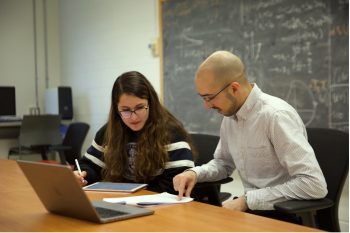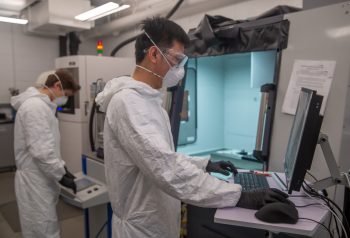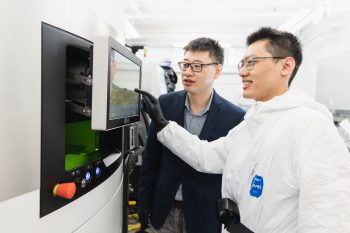From pulp and paper to biofuels, many industries are based on turning renewable biomass — trees, plants, food waste — into energy and green materials.
But even though the primary feedstock of these industries is organic matter, inorganic contaminants such as salts and metals are commonly found in the fields and forests where these feedstocks grow. The presence of these contaminants in the process is not just a nuisance; they can damage process equipment, reduce overall efficiency and create environmental headaches for the surrounding community.
Professor Nikolai DeMartini deals with these problems, offering techniques and methods that industrial processors can use to safely remove these contaminants. Before joining U of T Engineering this year, DeMartini spent nine years at Åbo Akademi University in Finland. Writer Tyler Irving sat down with DeMartini to learn more.
Can you explain the focus of your research/teaching?
I work on the process chemistry of inorganics in the industrial processing of biomass and waste. This work is directly applicable to the pulp and paper industry as well as companies involved in converting biomass and waste into liquid fuels and electricity.
Inorganic chemicals — including salts and metals — are often mixed in with biological material. Their presence and behavior impacts energy efficiency, corrosion and emissions. A major goal of my research is to make changes to industrial processes that can effectively deal with these inorganic components and lead to improvements both for the companies and surrounding communities.
I am fortunate to have three new students working on topics related to the water chemistry of the chemical recovery cycle in pulp mills. Two are working on crystallization of salts and the resulting effects on heat transfer scaling within the plant. The third is studying the solubility of metals in pulp mill waters to better help industry in their removal strategies.
I plan to expand into some topics related to thermal conversion as I take on additional students next spring.
Why did you choose U of T Engineering?
The most significant draw for me is the quality of the people I have met in the Department of Chemical Engineering & Applied Chemistry, both faculty and students. Not only is the scientific level extremely high, but the collegiality is recognized as an important element in the department’s success.
The second factor was the close ties to industry as I enjoy working in the interface between companies and academia.
What do you hope to accomplish, and what are you most looking forward to in your new position?
Within the realm of student development, I hope to make the application of chemical engineering more tangible. I know that for myself, it wasn’t until my internships in industry that I started to see how the subjects I was working on in the classroom could be applied. Beyond that, I hope to have a positive influence industry and to see my students in leadership roles in the future.



